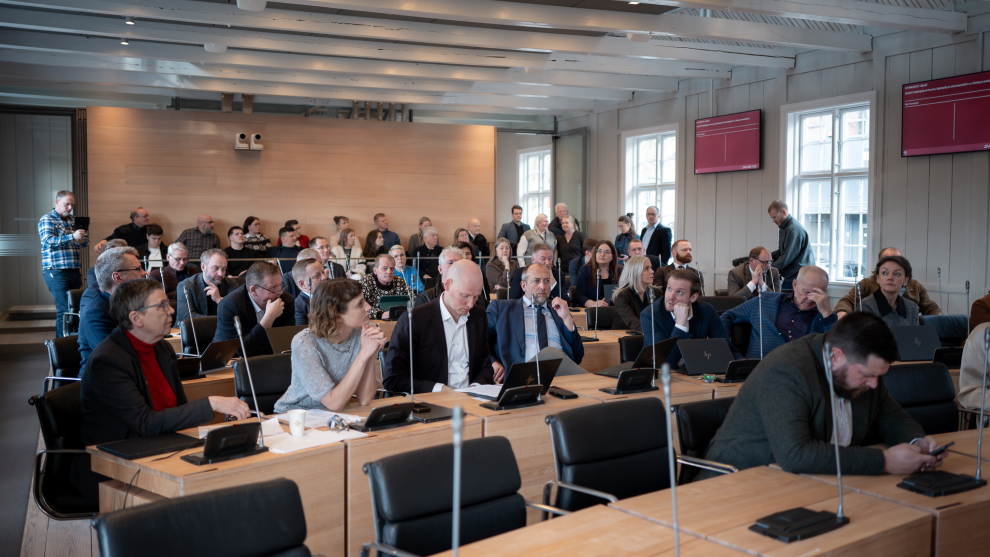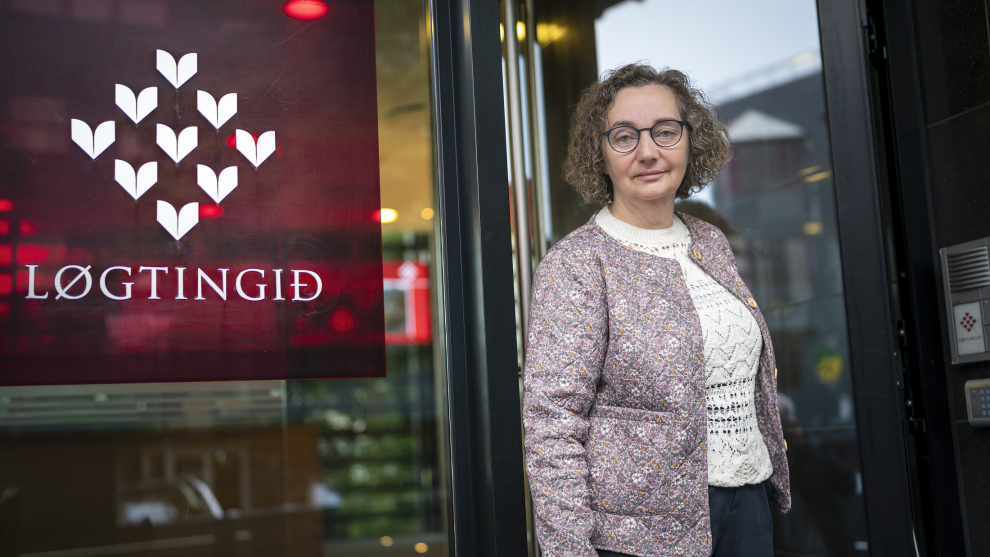- Tíðindi, mentan og ítróttur
Social services reopen as lockdown eases further

Below are some highlights from the 10am social services news conference featuring Elsebeth Mercedis Gunnleygsdóttur, Minister of Social Affairs, Edvard Heen, CEO of the Department of Social Services (Almannaverkið), Eyðun Christiansen, the head of the Municipalities Association (Kommunufelagið) and Tóra við Keldu, representing the country’s disabled people.
The Minister of Social Affairs started the news conference thanking care workers across the country for sacrificing their private lives to ensure that the coronavirus was kept out of institutions with our most vulnerable people.
The minister said that residents in care homes will now gradually be allowed to receive visitors. She was keen to point out that this process is carefully planned out with great precaution, and if infection occurs in any of these institutions, measures will be taken immediately to close down again.
>> SEE ALSO How corona affects social services
Edvard Heen, CEO of the Department of Social Services said he expects social services to return to full capacity by 30 June.
This, he said, is a realistic estimate since nobody in the social services has been in quarantine since 18 April and no positive corona cases have been registered in the country since 22 April.
Prearranged visits in and out of care homes will be permitted from tomorrow in close consultation with care staff.
Home care will also resume gradually this week.
>> SEE ALSO Further lifting of lockdown measures announced
Tóra við Keldu is the chairwoman of Megd, the national association for the support of disabled people, which covers 24 local member associations with 4,000 members in total.
She said that the member associations have been surveyed about their clients’ mental and physical consequences of the lockdown. “The responses gave us plenty of food for thought. For some, the keywords included anxiety, bad conscience, loneliness, longing and a lack of physical activity and support. Others have experienced the lockdown as a welcome break from daily life. We’re planning to expand this survey into a more extensive research project in the near future.”
Eyðun Christiansen, the head of the Municipalities Association, said that care homes had already started closing down when the Prime Minister announced the corona lockdown on 12 March. Since that date, visitors have only been allowed inside in exceptional circumstances.
>> SEE ALSO IT solutions crucial in corona fight
These restrictions have had a negative effect on the well-being of care home residents, who have reported feelings of loneliness, anxiety, poorer health and a drastically reduced quality of life.
Despite this, said Christiansen, imposing the restrictions was the right thing to do, as the coronavirus has been kept out of the country’s care homes.
Elderly care services in general will gradually return to normal next week, although restrictions will continue for particularly vulnerable groups.
>> SEE ALSO New self-quarantine procedures for travellers
Question from the floor: the reopening phase will be taking place during the holiday season. Can you guarantee that there will not be irregularities in the services on offer?
Edvard Heen: This summer will be different from other summers in many respects. With all the adjustments we have made, I am certain that we can offer a consistent level of services throughout the summer.
Question from the floor: who can visit elderly care homes?
Eyðun Christiansen: This is up to each family to decide, but the important thing is that there are not too many visitors at the same time.
>> SEE ALSO Hospital services gradually returning to normal
Question from the floor: can this reopening of social services be regarded as a sign that the corona threat is over in the Faroes?
Eyðun Christiansen: These reopening measures are based on careful considerations. After having children in schools and daycare for two weeks with no increase in positive corona cases, we believe it is safe to start including some of our more vulnerable citizens in our reopening measures.
Question from the floor: considering the negative effect the strict lockdown has had on our elderly population, was it all worth it in the end?
Eyðun Christiansen: This is not an easy question to answer, but I believe that many countries around us regret not acting as decisively as we did regarding our elderly citizens, because the corona pandemic has had a devastating effect on their elderly populations. In corona terms, ours is a success story, but the longer people are isolated the graver the consequences. So it’s a difficult calculation to make.



























